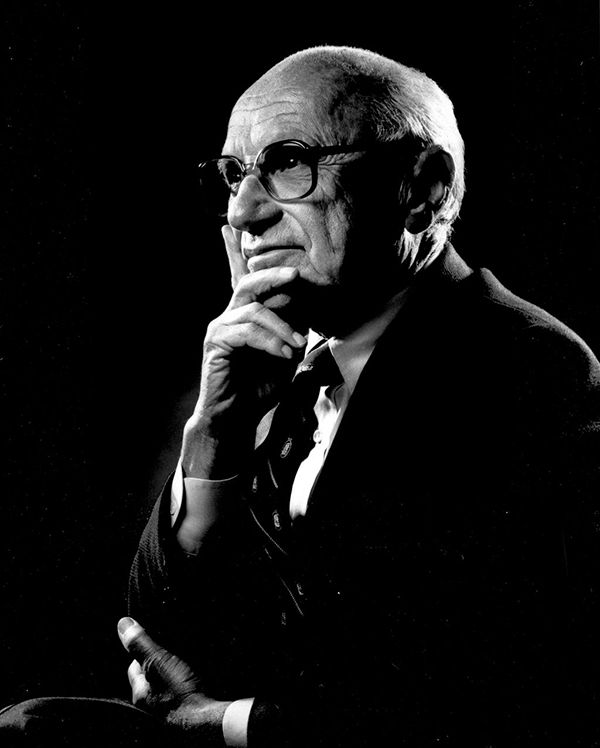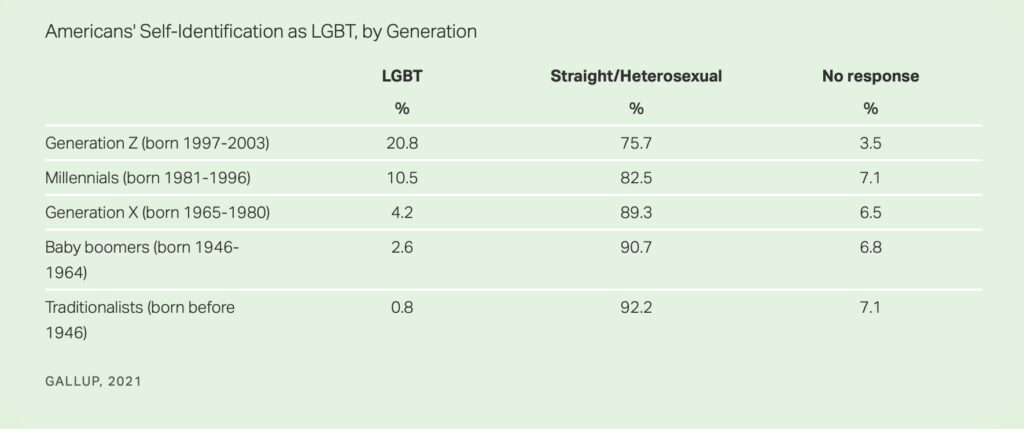Is a Free Society Stable?
- BRAD MINER
"Civilization is not inherited; it has to be learned and earned by each generation anew; if the transmission should be interrupted for one century, civilization would die, and we should be savages again." - Will and Ariel Durant, The Lessons of History (1968)
 Milton Friedman from The Friedman Foundation for Educational Choice, CC0, via Wikimedia Commons.
Milton Friedman from The Friedman Foundation for Educational Choice, CC0, via Wikimedia Commons.
The title for this column is borrowed from a nearly 5,000-word essay by Milton Friedman (1912-2006) that appeared in a 1981 issue of The New Individualist Review. (I'm not, by the way, a new individualist; I'm an old Catholic.)
Friedman wrote: "Only during short intervals in man's recorded history has there been anything approaching what we would call a free society in existence over any appreciable part of the globe." That much is evident. But Friedman adds this chilling note: "the rare episodes of freedom are themselves by their nature transitory, so that the kind of society we all of us believe in is highly unlikely to be maintained, even if once attained."
It's hard not to see this prophetic statement as now being fulfilled.
Attacks on the free society are now coming at a furious rate, surely to an extent unlike any other period in American history. At various times, there have been protests about war, economics, and injustices of various kinds. But opposition to, say, the Vietnam War, or intractable poverty, or racism always sought to reawaken America's foundational principles. The intent was reform, not revolution.
One might even say that the 1969 Stonewall riot—in which homosexual patrons of a Greenwich Village bar fought back against a police raid—was simply an attempt to secure Fourth Amendment rights, which clearly, were being denied. We're Americans! Treat us as such!
But there was no evangelical ambition, no intent to convert others to homosexuality—only an appeal to tolerance.
A little more than half-a-century later, this is no longer true. The freedom that was sought has become the subjection of all to the passions of a few.
How few? Less than 10 percent.
In 2012, Gallup surveyed the number of self-identified homosexuals in the United States: the result was about 3.5 percent. I recall thinking that seemed high, especially as I was writing a few columns here about the John Jay Report. But what do I know? Today, however, Gallup says the number is 7.1 percent. And I don't doubt it.
But the Gallup numbers according to age cohort are astonishing:
Does this not suggest something driven by proselytizing?
Of course, novelist Toni Morrison once called Bill Clinton our "first black president," so it may be that classifications in our era have become more fluid than in the past, suggesting that some people who are actually heterosexual tell pollsters they are LGBTQIA+ as an act of solidarity.
(Did you know, by the way, that each of those letters of the rainbow revolution marches under its own flag?)
Back to Milton Friedman:
If you look at each evil as it arises, in and of itself, there will almost always tend to be strong pressures to do something about it. This will be so because the direct effects are clear and obvious while the indirect effects are remote and devious and because there tends to be a concentrated group of people who have strong interests in favor of a particular measure whereas the opponents, like the indirect effects of the measure, are diffused.
The Nobel Laureate's argument here refers to the economic issue of tariffs, but I believe the principle applies to social issues as well.
We humans are a shortsighted species, and, if we know anything about history, it should be clear that we embrace novel ideas without the slightest knowledge of their long-term consequences.
The founding of the United States was undertaken by individuals well-schooled in various experiments in governance: from the "democracy" of ancient Greece to the then-contemporary parliamentary monarchy in Britain. The Founders attempted to build in the checks and balances (to human passion and corruption) that would sustain indefinitely our democratic republic.
Yet even they, as Framers, sowed seeds of failure (and war) with the Constitution's Three-fifths Compromise.
Friedman subtly suggests Marxism has provided the intellectual framework for limitations of freedom—and not just among politicians but even among some "capitalists": "Such individuals are induced to place high values upon technical performance and to become adaptable to a kind of civil-service socialist organization of society."
Laissez-faire capitalism can become undermined "by its own success."
The most hopeful sign Friedman saw for maintaining freedom was the one Adam Smith believed: "the ingenuity of millions of people, each of whom is trying to further his own interest." That might seem to be selfishness were it not for the fact that fulfillment demands cooperation.
What Friedman (and Smith certainly) never imagined is the impact of the Internet, the ultimate expression of chaotic democracy, elevating sin and stupidity to a level of exposure equal to or exceeding that of virtue and wisdom.
Thus, we get as credible the assertion—in the purview of both government and media—that a man can be a woman, along with the demand that we all assent.
As Thomas Sowell has written, "Gays were on their strongest ground when they said what they did was nobody's business. Now they are asserting a right to other people's approval, which is wholly different. None of us has a right to other people's approval."
I'm Catholic ... and Stoic. I believe in freedom—and not just for myself. And diminutions of freedom won't affect me very much. (I don't care much who is POTUS.) But I think of my granddaughter, not yet 3, who already loves to run. Given the athleticism of her parents, she'll run fast and faster as she grows. But not faster than the boys and, later, men claiming to be her same "gender." Not faster than those liars.
And if you assert that males don't have a biological advantage over real women, tell me why it is biological women (XX) never demand to compete against real men (XY)?
Just one example of a risk to civilization, and to the Roman Catholic faith. That faith gives us the underpinning of civilization:
"So God created humankind in his image, in the image of God he created them; male and female he created them." - Genesis 1:27
 This is J. Fraser Field, Founder of CERC. I hope you appreciated this piece. We curate these articles especially for believers like you.
This is J. Fraser Field, Founder of CERC. I hope you appreciated this piece. We curate these articles especially for believers like you.
Please show your appreciation by making a $3 donation. CERC is entirely reader supported.

Acknowledgement
 Brad Miner. "Is a Free Society Stable?" The Catholic Thing (July 12, 2023).
Brad Miner. "Is a Free Society Stable?" The Catholic Thing (July 12, 2023).
Reprinted with permission from The Catholic Thing.
The Author
 Brad Miner is the Senior Editor of The Catholic Thing and a Senior Fellow of the Faith & Reason Institute. He is a former Literary Editor of National Review. His most recent book, Sons of St. Patrick, written with George J. Marlin, is now on sale. His The Compleat Gentleman is now available in a third, revised edition from Regnery Gateway and is also available in an Audible audio edition (read by Bob Souer). Mr. Miner has served as a board member of Aid to the Church In Need USA and also on the Selective Service System draft board in Westchester County, NY.
Brad Miner is the Senior Editor of The Catholic Thing and a Senior Fellow of the Faith & Reason Institute. He is a former Literary Editor of National Review. His most recent book, Sons of St. Patrick, written with George J. Marlin, is now on sale. His The Compleat Gentleman is now available in a third, revised edition from Regnery Gateway and is also available in an Audible audio edition (read by Bob Souer). Mr. Miner has served as a board member of Aid to the Church In Need USA and also on the Selective Service System draft board in Westchester County, NY.



